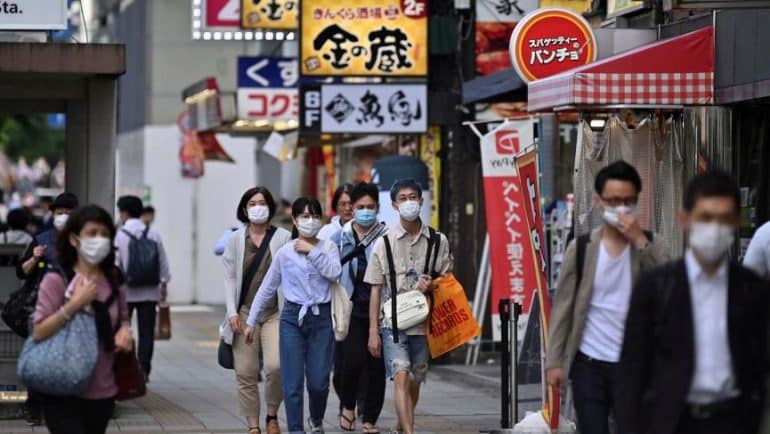Japan's economy grew for a third straight quarter, thanks mainly to household consumption, data for the April-June period showed today, as the Asian country finally makes a long-delayed recovery from the languor caused by the novel coronavirus pandemic.
But the outlook remains uncertain due to a resurgence of new coronavirus cases, slowing global growth, problems in supply chains and increases in the prices of raw materials and staples, which are driving up the cost of living for households.
GDP in the world's third-largest economy expanded 2,2 percent year-on-year in the second quarter, up from 0,1 percent in the January-March period, according to government data. Growth was slower than what markets had expected on average (2,5%).
The growth is mainly attributed to an increase in private consumption (+1,1%), which accounts for more than half of Japan's GDP, according to official data. However, it was smaller than expected (1,3%). Capital expenditure (s.s.: investments) however increased by 1,4%, exceeding the forecasts of market players (0,9%).
External demand neither added nor reduced GDP growth, although analysts had expected it to contribute 0,1%. Japan's recovery has lagged that of other major economies since the pandemic, due to lackluster consumption, partly attributed to containment measures until March.
This has made the Bank of Japan an exception to the global economic backdrop, as other central banks have been tightening monetary policy due to rising inflation.
Policymakers hope that pent-up demand will support consumption until wages rise enough to offset the rise in the cost of living. But there are doubts about whether and to what extent Japanese companies will give wage increases as global demand slows, analysts say.
China
China's central bank cut key lending rates today in a surprise move to boost demand as data showed the economy unexpectedly slowed in July, with industrial activity and retail trade under pressure from the zero-Covid policy that implements China and a crisis in the real estate market.
The figures show the world's second-largest economy is struggling to cope with the blow to growth dealt by strict Covid-XNUMX restrictions, prompting some economists to revise down their forecasts.
Industrial production rose 3,8 percent in July from a year earlier, according to the National Bureau of Statistics (NBS), down from June's 3,9 percent growth and a 4,6. XNUMX% expected by analysts polled by Reuters.
Retail sales, which only picked up again in June, rose 2,7% from a year ago, missing forecasts for 5,0% growth and the 3,1% growth rate recorded in June.
"July's data shows that post-lockdown growth has lost momentum, while the property sector has deteriorated again," said Julian Evans-Pritchard, China economist at Capital Economics. "The People's Bank of China is already responding to these headwinds by increasing support... But this may not be enough to prevent further economic weakness."
Source: KYPE
